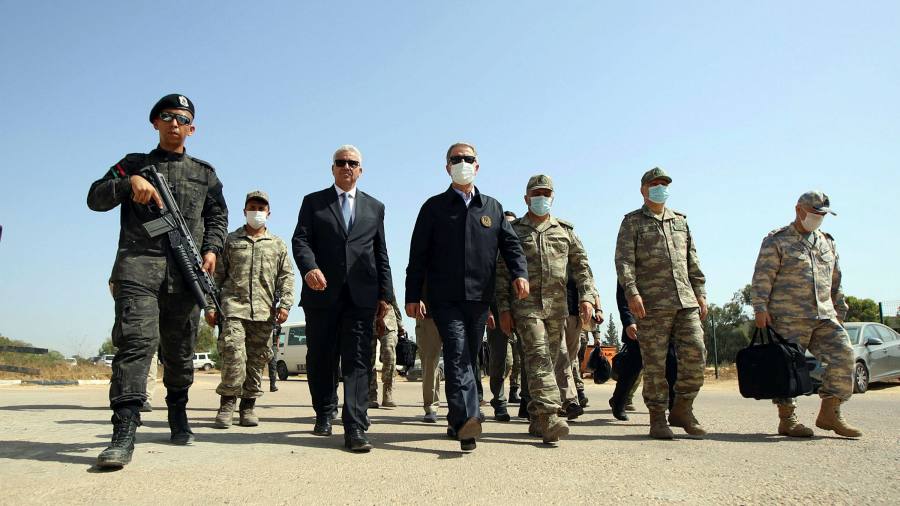
France accused Turkey due to disagreement centers on Mediterranean Sea. France has informed Ankara and Brussel to suspend their involvement in NATO’s Operation Sea Guardian (Operation Sea Guardian is an expanded mission of maritime situational awareness, counter-terrorism at sea, and support to capacity-building missions). Paris accused Ankara behaving aggressively on French frigate, Courbet, as it was participating in the NATO’s maritime security operation.
NATO approved its first defense plan for the Baltic states and Poland back in 2010 but they have sought for it to be consistently updated, notably after Russia annexed Crimea from Ukraine in 2014. The conflict notably led to a spat between Turkish President Recep Tayyip Erdogan and his French counterpart Emmanuel Macron at the summit in December 2020.
France wants to squeeze the expansion of Turkey’s growing influence in Mediterranean region. The war ship incident with Turkey displayed how Turkey is serious about protecting its interest in the region.
France has accused Turkey of repeated violations of the U.N. arms embargo on Libya and branded the Turkish government as an obstacle to securing a cease-fire in the North African nation, which Turkey firmly denies. On the other hand, Turkey blames countries like UAE, Egypt, Saudi Arabia of violations while France and US have been reluctant to effectively take steps against those countries. Turkey believes that the embargo is meant to be against Libyan Accord Government but leaves a hole to Arab states via support of France and US to support Hafter forces with military equipment. Even the latest intel emphasize that US-made Javelin missiles, purchased by France, were discovered by Libyan government forces after they seized one of Gen Haftar’s camps.
Therefore, Turkey has a upper hand. France cannot deny the missiles and support to Hafter’s forces while France is part of UN and NATO although France continuously states its neutrality. On the other hand, Turkey is emphasizing openly that Ankara is helping military advice and technology to Libyan National Accord Government which is recognized by UN. However, the tension does not arise due to Libya but Mediterranean region.
The natural resources discovered in Mediterranean region attracts Turkey’s attention. Turkey has been spending around $50 billion to energy. President Erdogan intends to lower its costs through its active foreign policy in Mediterranean region. But this is only a part of the strategy. The major one is to establish its maritime security from Turkey to other maritime borders including to Asian states via Suez Channel. Therefore, Turkey has been investing its navy capability in recent years.
As Geopolitic Compass, we do not foresee frictions to be resolved in short time but to intensify in coming decade. Turkey, with or without President Erdogan, will focus on increasing its influence in Mediterranean and other regions such as Balkans and Center Asia if Turkey intends to be a major force in this arena while US is withdrawing and Russia is losing muscle.

